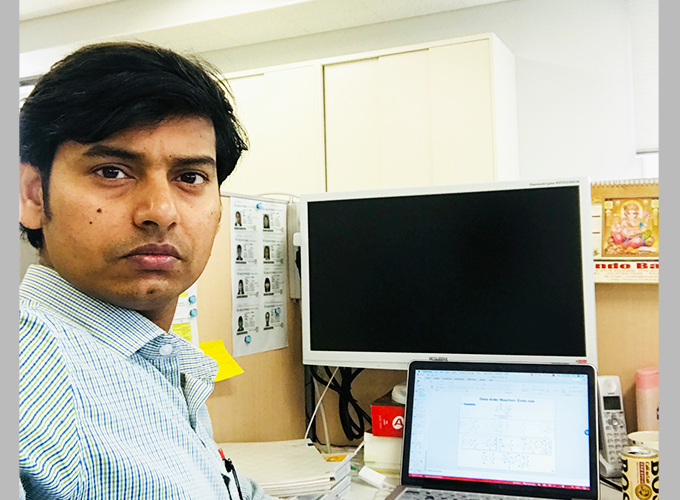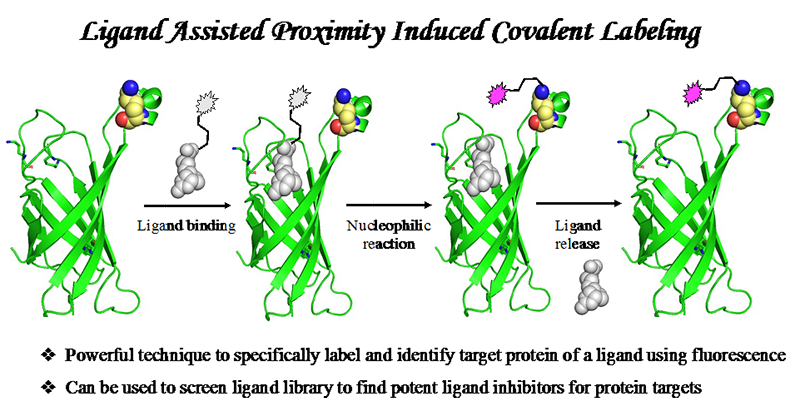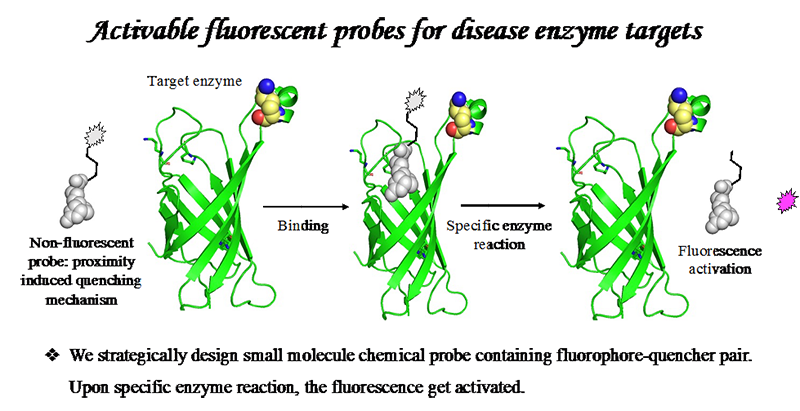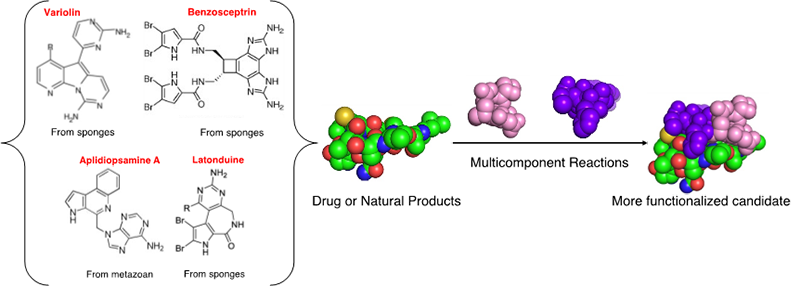Rajiv Kumar Verma
Associate Professor, Master of Science in Organic Chemistry, Ph.D. in Organic Synthesis
- verma.rajivkumar

- Areas of Research
- Synthetic Organic Chemistry, Chemical Biology, Fluorescent Probe Design
- Profile
- Research
-
Dr. Rajiv Kumar Verma was born and raised in a small yet famous town in northern India, named Varanasi. He earned his Bachelor of Science in Chemistry and Biology, Master of Science in Organic Chemistry, and Doctor of Philosophy in Organic Synthesis from Banaras Hindu University in India.
Dr. Verma was a postdoctoral fellow at the Institute of Scientific and Industrial Research at Osaka University, where he engaged in research on the synthesis of nucleic acid-binding organic molecules and chemical probes. He then taught chemistry for the CBCMP program of the international college at the same university. Following this, he worked as a research scientist at RIKEN-Wako and researched small molecule fluorescent probes to elucidate cellular mechanisms.
He returned to India and was an associate professor for the Department of Chemistry at the University of Lucknow, where he taught organic, medicinal and pharmaceutical chemistry to undergraduate and graduate students.Dr. Verma is currently working as an associate professor at the Faculty of Bioenvironmental Sciences at Kyoto University of Advanced Science. He teaches chemistry lectures and experiment classes for 1st-year undergraduate students. He also instructs experimental courses in organic chemistry, chemical ecology and specialized seminars.
-
Living things are composed of small to large-sized organic compounds, such as carbohydrates, proteins and lipids, etc. The mechanisms for regulating and sustaining life phenomena involve the wonderful cooperation of these molecules. Thus, designing organic compounds that can help to understand these life phenomena is quite an interesting field of science and of great importance. Synthetic organic chemistry is an extremely powerful branch of chemistry that has the potential to prepare desired molecules, not only for the study of life phenomena but also for novel materials to advance all branches of science and engineering.
Fluorescent Probe Design: Dr. Verma’s research focuses on the synthesis of organic compounds, which have various applications in the field of chemical biology. The branch of science which deals with the chemical basis of biological phenomena is called chemical biology. He designs small molecule fluorescent probes to identify biomolecules responsible for cellular mechanisms associated with diseases such as neurological, immunological and other disorders. By identifying these molecules, we have a genuine chance to design compounds that can inhibit disease mechanisms. Dr. Verma and his team develop fluorescence-based screening methods to find active small molecules that may have potential applications as medicines.


Late-Stage Multicomponent Reaction: Most of the medicines show medicinal effects by interacting with biomolecules through the functional groups. Recently, many compounds from plants and animals (natural products) were found to be effective in treating diseases. To improve the effectiveness of these natural products, Dr. Verma’s team is planning to perform chemical reactions on these natural products and develop more potent organic compounds.
